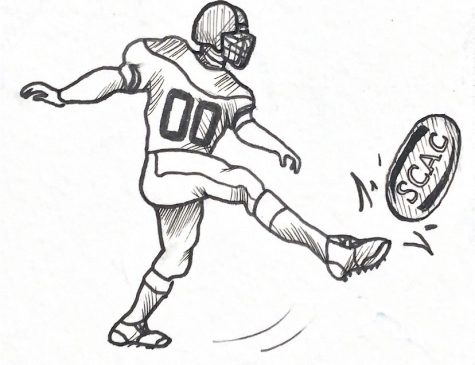Fire alarms in Prassel spark frustrations
Facilities services working to address student concerns
All residence halls are required to have a fire drill every semester; however, in Prassel hall, the fire alarms have gone off three additional times. Though these were unrelated instances, these alarms seem to be an issue to Prassel residents and facilities services.
During the winter snowstorm, a fire sprinkler head broke because of freezing temperatures. Because the system did not recognize what had caused this, the fire alarm was set off and Prassel residents were forced to evacuate the building in the early hours of the morning. Students stood in the cold until it was determined that there was no real threat.
First-year economics major, Piper Thomas described her discomfort with the experience.
“Waking up at 5 in the morning when it was negative degrees outside was not fun. And they made us wait outside for a long time and we had to go all the way across the snow,” she said. “They didn’t really train us on protocol either, are you supposed to check that your suitemate goes out, or is it just every man for himself? And are you supposed to check in with your RA?”
The two additional times that the alarm went off was the weekend of April 10th and the morning of April 12th. During these instances, the system detected that there was water flowing through it, which triggered the alarms. Again, on the 12th, students were woken up at around 3 a.m. while they waited for the alarms to be turned off.
“I was delusional because I was asleep so I ripped my phone out of the wall and there was still sound going on. I thought it was my phone so I was tapping it and I was like ‘oh shoot there’s an alarm.’ It was like 3 or 4 in the morning so I got very little sleep,” said Piper.
Ernesto Gonzalez, associate director of facilities services, explains the procedure that residence halls have to follow for fire drills.
“Environmental Health and Safety manages this process and works with Res Life to coordinate the scheduling of the fire drills. We typically try to schedule fire drills around September for fall semesters and around February for spring semesters,” he said.
Additionally, facilities services test the alarm system all around campus every semester.
“An example of a test and inspection on a smoke detector would be to use smoke-in-a-can to simulate smoke in the building to trigger the detector into alarm. Then, the techs ensure the smoke detector communicates the trouble to the fire alarm panel which would set the fire alarm system into full alarm in a real case scenario,” said Mr. Gonzalez.
In order to remedy the problems that have gone on in Prassel, Gonzalez and other workers have been working on maintaining safety in the building.
“For the fire suppression system in Prassel hall, we have recently replaced the transfer switch that controls the source of power for the fire pumps. In the case of the loss of normal power to the building, the switch would transfer the source of power from normal power to emergency power that is provided by the building’s emergency generator. The fire pumps provide and maintain the necessary water pressure in the fire sprinkler system.”

My name is Emma and I am a sophomore from Lockhart, Texas. I have worked at the Trinitonian since Spring 2021. I am an English major and hope to become...
















